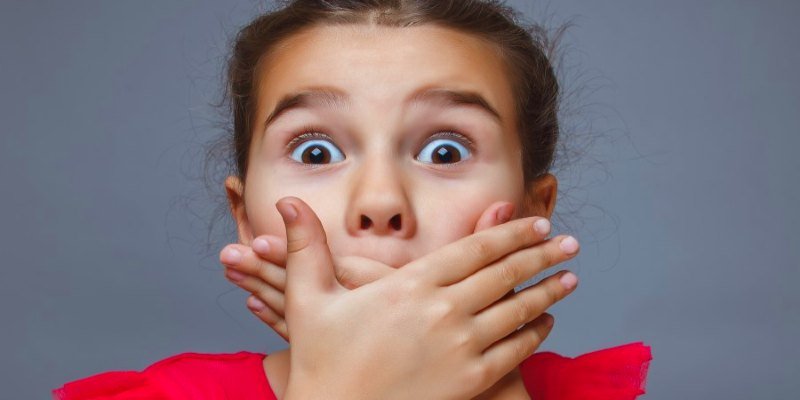Complete guide on how to stop burping outlines causes and methods to prevent constant burping, and when to see a doctor.
Everyone has to burp on occasion. The causes of a burp are different, but most of them are harmless. But what to do if the burping (eructation in medical terms) gets out of hand? We explain how often burping is normal and how to stop burping.
Brief overview of burping
- How much burping is normal? This is individually different and depends, among other things, on the diet and personal feeling.
- Causes of burping: e.g. eating hastily, talking a lot while eating, carbonated drinks, pregnancy, various diseases (gastritis, reflux disease , food intolerance, tumors, etc.)
- How to stop burping: Sometimes a change in diet, smaller servings or slower food will help; if there is an underlying disease, the doctor will treat it, which usually also regulates the burping
How to stop farting — and when to see a doctor!
How to stop burping constantly
How much burping is normal?
How much burping is normal varies from person to person and is always a question of how you feel. For some, it is perfectly normal to burp several times a day. Others find every burp uncomfortable.
However, burping is often harmless and simply a reflex of the body to reduce the feeling of fullness that occurs when gas builds up in the stomach .
In contrast to vomiting, the stomach does not contract convulsively when burping. The backward-facing muscle movement of the esophagus (peristalsis) also does not occur, which ensures that the stomach contents are transported outside in a surge when vomiting.
How to stop burping: causes
(Frequent) burping can have various reasons. The most important are:
Swallowing air
Certainly the most common reason someone burps or burps is swallowing air while eating. Especially when someone is rushed to eat, a little air gets into the stomach with every bite. The same applies if you have a lively conversation and talk a lot while eating. Part of the air in the stomach then tries to find its way “outside” by burping. The rest of them move on to the intestines .
This type of burping is completely normal. You shouldn’t suppress it, otherwise flatulence may develop, but at best let the air out gently behind your hand .
Gases
In addition to normal breathing air, gas can also get up when burping. Sometimes it is gases that are produced during digestion . But even after drinking a carbonated drink, gas can collect in the stomach and then escape through burping. Both can also occur in combination: If you eat a dish with legumes such as peas or lentils and drink cola with it, you shouldn’t be surprised by frequent burping.
In addition to pulses, onions, whole grain and yeast products, coffee and cream also have a flatulence effect.
Burping with regurgitation
If some food comes up with the burping, it does not have to be an illness. The escaping air can carry food up sometimes. Even if the stomach contents are sometimes acidic, it is not necessarily a sign of illness or disease.
Only if this happens regularly, especially after eating fatty and sweet foods, could a reflux disease be behind it. Rising stomach acid irritates the esophagus, which manifests itself as a painful burning sensation in the chest ( heartburn ). In the long run, the mucous membrane of the esophagus is damaged by frequent contact with the aggressive stomach acid, and the teeth also suffer when the stomach contents repeatedly rise into the mouth .
In rarer cases, other conditions are responsible for excessive burping:
Narrowing (stenosis) of the esophagus: If the food pulp that is pushed open is still undigested, this may be due to the fact that the esophagus is narrow (stenosis) and the swallowed food cannot or only partially reach the stomach. The narrowing can be congenital or, for example, due to a tumor.
Leaky stomach entrance: If the muscle loop (sphincter) at the junction between the esophagus and stomach does not close properly, air, gas and solid stomach contents can get up more easily. This can occur, for example, as a side effect of certain medications (psychotropic drugs, calcium channel blockers) or it can also be the case from birth .
Zenker’s diverticulum: This is a bulging (diverticulum) of the muscle wall in the throat (hypopharynx), i.e. in the deep throat region, still above the esophagus. In the advanced stage, food pulp collects in this protuberance, which eventually gets back into the mouth through burping. The esophagus can also have diverticula.
Inflammation of the stomach lining: Inflammation of the lining of the stomach (gastritis) can also be a reason for frequent burping. The inflammation is often due to a colonization with the bacterium Helicobacter pylori .
Narrowing at the gastric exit: If the muscles at the gastric exit (gatekeeper) cramp, the accumulated food does not get into the duodenum . Occasionally, scarring after ulcers or tumors has a similar effect. The latter can also lie outside the stomach, for example in pancreatic cancer .
Intestinal obstruction (ileus): Very rare, but all the more frightening, is the burping of what is already heavily digested with a stool odor. The cause of this is usually an intestinal obstruction, which the chewed-on food pulp cannot push past. So it builds up and in extreme cases wanders back into the mouth.
Food Intolerance: If burping occurs, especially after consuming certain foods, it could be an indication of an underlying food intolerance, such as gluten intolerance or lactose intolerance. To accurately diagnose and identify specific food intolerances, it is recommended to undergo a food intolerance test. This test can help pinpoint the particular food triggers causing the symptoms, allowing individuals to make informed dietary adjustments. By addressing food intolerances through the guidance of a Food Intolerance Test, individuals can alleviate discomfort and promote better digestive health.
Burping in pregnancy
Pregnancy is a state of emergency for women. Your body changes in many ways – and many pregnant women also have more burping. The reason for this is the pressure from below on the stomach, which the growing fetus increasingly exerts. It pushes the stomach up, and the sphincter at the entrance to the stomach often no longer holds tight.
Unfortunately, not only air but also stomach acid have an easier time getting to the top. That’s why pregnant women often get heartburn. However, it usually disappears at birth.
Extreme burping can be a symptom of these health problems
- Achalasia
- Intestinal obstruction
- Cow’s milk allergy
- Lactose intolerance
burping: what helps?
Since burping is often harmless, there are a few things that you can do yourself to deal with it:
- Eat slowly and chew adequately : To avoid swallowing too much air, you should take time to eat and chew enough. Then you probably don’t have to burp afterwards.
- Talking little while eating: You can limit swallowing air while eating if you don’t talk too much while you are eating.
- Avoid sweet, greasy foods and too much coffee: If you have frequent heartburn, you should avoid very sweet and fatty foods, as these aggravate the problem. It is the same with too much coffee.
- Several small meals: It can also help against burping to eat several small meals throughout the day instead of overloading the digestive tract with a few large ones.
- Non-carbonated : Instead of carbonated drinks, use still water more often. Then you should also have to burp less.
- Do not smoke : Since smoking can reduce the tension in the gastric sphincter and thus cause heartburn, you should stop cigarette consumption if possible.
How to stop burping: When should you see a doctor?
As long as only air or gas comes to light during the burping, and not in excess, this is certainly no reason for a doctor’s visit. The perception here may be individual, but as a rule “the normal extent” can also be assessed by laypeople. If you suddenly have to burp all the time (without having significantly changed your diet), you should have this checked out by a doctor. For example, it could be a food intolerance.
A visit to the doctor is also advisable if the burping is accompanied by other symptoms (such as stomach pressure, heartburn) or if undigested food gets into the mouth when burping.If the regurgitation unusually bad smell, or if digested food comes up with chair odor, you need to see a doctor as soon as possible. Intestinal obstruction is then suspected, and this is always a medical emergency!
What can the doctor do?
First, the doctor needs to find the cause of the burping. The treatment is based on this.
First of all, the doctor will ask the patient exactly ( anamnesis ), for example when the person concerned has to burp, to what extent and whether there are any other symptoms (e.g. heartburn). Depending on the information from this initial consultation and the presumptions of the doctor, various examinations can follow. A gastroscopy , for example, is often helpful: the doctor can use it to search for possible causes of the increased burping in the esophagus and stomach (e.g. narrowing of the esophagus, gastritis).
Treatment of burping
Once the cause of the burping is found, the doctor will initiate appropriate treatment. Examples include:
- If protrusions or constrictions of the throat or esophagus turn out to be the trigger, a small intervention can sometimes be found during the gastroscopy. Otherwise, minor surgical interventions follow.
- The doctor usually treats reflux disease and inflammation of the stomach lining with medication (proton pump inhibitors, antibiotics for gastritis).
- An intestinal obstruction needs medical treatment as soon as possible. Sometimes medication is sufficient, but most of the time the surgeon has to use the scalpel.
- In the case of food intolerances, special diets are usually the only permanent solution.
- Tumors require individual therapy with the available methods (e.g. surgery, chemotherapy , radiation).
These examinations help to find out the causes of the symptoms:
- Auscultation
- Endoscopy
- H2 breath test
- Gastric examination




